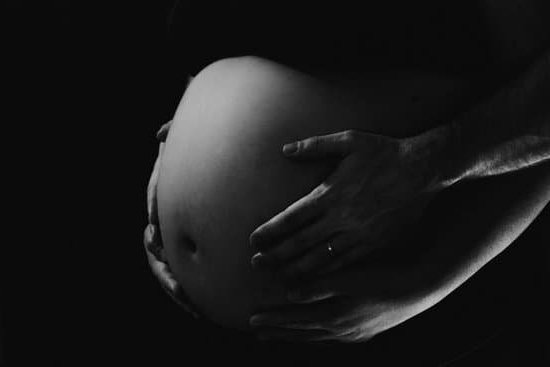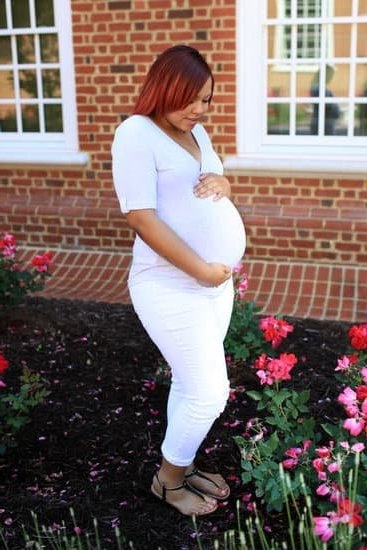How long is pregnancy? This question is one that many people wonder about as they anticipate the arrival of a new baby. Understanding the length of pregnancy is not as simple as counting down nine months on a calendar. In this article, we will explore the science behind pregnancy, factors that can affect its length, and common misconceptions about the process.
Pregnancy is an incredible journey that involves numerous stages of gestation, each with its own unique characteristics and developments. From the moment of conception to the birth of a baby, there are various factors at play that contribute to the overall length of this miraculous process. Genetics, environmental influences, and individual health all play a role in determining how long a pregnancy will last.
Throughout this article, we will also delve into how doctors calculate due dates, debunk myths and misinformation surrounding pregnancy length, and explore potential complications and variations in pregnancy duration. By understanding the intricacies of pregnancy length, individuals can better prepare for the end of pregnancy and embrace the journey leading up to the miracle of birth.
The Science Behind Pregnancy
Pregnancy is a remarkable and complex process that involves the development of a new life within the mother’s body. Understanding the stages of gestation is crucial in comprehending how long pregnancy lasts and what changes occur within the body during this time.
The stages of pregnancy can be divided into three main trimesters, each with its own set of developments and milestones. These stages are crucial in determining how long pregnancy lasts and the changes that occur within the body throughout this time.
The Science Behind Pregnancy: Exploring the Stages of Gestation
During the first trimester, which spans from conception to week 12, the fertilized egg undergoes rapid cell division, eventually forming an embryo. This early stage is characterized by significant hormonal changes and the development of vital organs such as the heart, brain, and spinal cord. Meanwhile, physical symptoms such as morning sickness and fatigue are common during this phase.
The second trimester, from weeks 13 to 28, is marked by further growth and development of the fetus. At this stage, expectant mothers may feel their baby’s first movements and start to visibly show signs of pregnancy. The fetus also begins to develop features such as hair, nails, and a fully formed skeletal structure. Additionally, prenatal screenings are often performed during this period to monitor the baby’s health.
Finally, during the third trimester (weeks 29-40), significant fetal growth occurs as the baby prepares for birth. As pregnancy nears its end, expectant mothers may experience discomfort due to their growing belly and increased weight. In preparation for birth, many women attend childbirth classes and make arrangements for labor and delivery.
By understanding these stages of gestation, prospective parents can gain valuable insight into how long pregnancy lasts and what to expect at each phase of this extraordinary journey.
Factors Affecting the Length of Pregnancy
Pregnancy is a natural process that typically lasts around 40 weeks, but the actual length can vary for a number of reasons. Understanding the factors that affect the length of pregnancy can help expectant parents better prepare for the journey ahead and manage their expectations. From genetics to environmental influences, there are several important variables to consider when it comes to the duration of gestation.
Genetic Factors
Genetics play a significant role in determining how long a pregnancy will last. Research has shown that women often follow similar gestation patterns as their mothers and sisters. Additionally, certain genetic variations can influence factors such as hormone production, fetal development, and the strength of the uterine walls, all of which can impact the length of pregnancy.
Environmental Influences
Environmental factors can also have a significant impact on the length of pregnancy. For example, exposure to certain chemicals or pollutants in the workplace or at home may affect hormonal balance and contribute to preterm labor. Additionally, stress levels and overall maternal health can influence the duration of gestation.
Nutritional and Lifestyle Choices
The nutritional status and lifestyle choices of expectant parents can also influence the length of pregnancy. Poor diet, lack of exercise, smoking, alcohol consumption, and drug use have all been linked to an increased risk of preterm labor. On the other hand, maintaining a healthy diet and regular exercise routine during pregnancy can help support full-term gestation.
Understanding these factors can empower parents to make informed decisions and take proactive steps to support a healthy and full-term pregnancy. By being aware of genetic predispositions, environmental influences, and personal lifestyle choices, expectant parents can work with healthcare providers to optimize their chances of experiencing a successful full-term birth.
How Long Is Pregnancy by Trimester
During pregnancy, a woman’s body goes through incredible changes as it nurtures and grows a tiny human being. Understanding how long pregnancy lasts is essential for expectant parents to prepare for the arrival of their little one. Pregnancy is typically measured in trimesters, each lasting approximately three months, and these stages are crucial for monitoring the development of the baby and preparing for childbirth.
First Trimester: The Early Weeks
The first trimester of pregnancy spans from week 1 to week 12, encompassing the early stages of conception. During this time, the fertilized egg implants in the uterus and rapidly develops into an embryo, forming vital organs and structures. Expectant mothers may experience symptoms such as morning sickness, fatigue, and mood swings during this period.
Second Trimester: The Golden Period
The second trimester begins at week 13 and lasts until week 27. This phase is often referred to as the “golden period” of pregnancy, as many women experience relief from early symptoms like nausea and enjoy increased energy levels. It is also when the baby’s movements become more pronounced, allowing parents to feel their little one kicking and moving.
Third Trimester: The Final Stretch
The third trimester encompasses weeks 28 to 40 (or until birth), signaling the final stretch of pregnancy. By this stage, the baby has grown significantly and is preparing for life outside the womb. Expectant mothers may experience physical discomfort due to the growing size of their belly, along with other symptoms such as heartburn, back pain, and frequent urination.
Understanding how long pregnancy lasts by trimester allows expectant parents to track their baby’s development and prepare for childbirth. Each stage brings unique challenges and rewards, ultimately leading up to the miracle of birth.
Common Misconceptions About Pregnancy Length
There are several common misconceptions about the length of pregnancy that often lead to myths and misinformation. In order to debunk these misconceptions, it’s important to understand the actual duration of a typical pregnancy. Here are some of the most common myths about pregnancy length and the truth behind them:
- Myth: Pregnancy is 9 months long. Reality: While many people refer to pregnancy as lasting 9 months, it is actually closer to 40 weeks, which is around 10 months according to the lunar calendar.
- Myth: All pregnancies last the same amount of time. Reality: The length of pregnancy can vary from woman to woman, and even for the same woman in different pregnancies.
- Myth: The due date is an exact science. Reality: Due dates are really just estimates based on a standard 40-week gestation period, but only about 5% of women deliver on their estimated due date.
It’s important for expectant parents to have accurate information about how long pregnancy lasts in order to alleviate unnecessary anxiety or misunderstandings.
Another common misconception about pregnancy length revolves around how it’s measured. Many people believe that pregnancy starts from the day of conception, but in reality, healthcare professionals measure it from the first day of a woman’s last menstrual period until birth. This adds approximately two weeks onto how long the pregnancy is by traditional counting methods.
Overall, understanding and debunking these misconceptions can help individuals have a more realistic expectation and grasp on how long pregnancy truly lasts. By breaking down these myths with accurate information, pregnant individuals can feel more informed and prepared for this incredible journey towards parenthood.
How Doctors Calculate the Due Date
Calculating the due date is a crucial aspect of prenatal care as it helps healthcare providers monitor the progress of the pregnancy and ensure the well-being of both the mother and the baby. But how do doctors accurately predict when a baby will be born?
One common method used by doctors to calculate the due date is based on the first day of the woman’s last menstrual period (LMP). This method assumes that a woman has a regular 28-day menstrual cycle and ovulates on day 14. The due date is then estimated to be 280 days (or 40 weeks) from the LMP.
Another method that may be used, especially if a woman has irregular periods, is an early ultrasound. In early pregnancy, ultrasounds can provide valuable information about the gestational age of the fetus. By measuring the size of the embryo or fetus, doctors can estimate how far along the pregnancy is and calculate a more accurate due date.
In certain cases, such as when a woman is not sure about her LMP or has irregular periods, additional testing or ultrasounds may be recommended to determine gestational age. It’s important to note that only about 5% of babies are born on their actual due dates, so these methods are estimates and not an exact science. However, they still provide valuable guidance for prenatal care and preparation for childbirth.
| Method | Accuracy |
|---|---|
| Last Menstrual Period (LMP) | Estimates due date based on regular 28-day cycle; less accurate for irregular cycles |
| Early Ultrasound | Measures size of embryo/fetus to estimate gestational age; more accurate than LMP for irregular cycles |
| Additional Testing/Ultrasounds | Recommended for determining gestational age in cases of irregular periods or uncertainty about LMP |
Differences in Pregnancy Length
Pregnancy length can vary from woman to woman, and even in the same woman across different pregnancies. The average pregnancy length for a full-term baby is 40 weeks, or about 9 months. However, some pregnancies may last as little as 37 weeks or as long as 42 weeks. There are several factors that can affect the length of a pregnancy, and it is important for expectant mothers to be aware of these potential variations.
One factor that can influence the length of pregnancy is genetics. Women who come from families with a history of longer or shorter pregnancies may also experience similar gestation periods. Additionally, environmental influences such as stress, nutrition, and overall health can impact the duration of pregnancy. For example, women with certain medical conditions like high blood pressure or diabetes may have shorter or longer pregnancies.
In some cases, potential complications can arise due to variations in pregnancy length. Premature birth, which occurs before 37 weeks, can lead to health issues for the baby. On the other hand, post-term pregnancy beyond 42 weeks can increase the risk of stillbirth and other complications for both the mother and baby. It is important for healthcare providers to closely monitor pregnancies that fall outside the typical gestation period to ensure the well-being of both mother and child.
| Factor | Influence on Pregnancy Length |
|---|---|
| Genetics | History of longer or shorter pregnancies in family |
| Environmental Influences | Stress, nutrition, overall health |
| Potential Complications | Premature birth or post-term pregnancy leading to health issues for baby and mother |
Preparing for the End of Pregnancy
As the due date for your baby’s arrival approaches, there are several things you can expect to experience as part of the natural process of preparing for labor and delivery. It is important to remember that every woman’s experience with pregnancy is different, but there are some common signs and symptoms that may indicate the impending arrival of your little one.
One of the first signs that your body is getting ready for labor is the descent of the baby into the pelvis, also known as “lightening.” You may notice a lower belly appearance as the baby drops into position for birth. This can alleviate pressure on your diaphragm and make it easier to breathe, but it may also cause increased pressure on your bladder, leading to more frequent urination.
You may also start experiencing Braxton Hicks contractions more frequently as your due date nears. These practice contractions help prepare your body for labor by toning the uterus muscles, although they are typically milder and less regular than true labor contractions. Additionally, you might notice an increase in vaginal discharge as your body prepares for childbirth.
This discharge, called “show,” can be a sign that labor is imminent but should not be a cause for alarm unless accompanied by other symptoms such as contractions or water breaking. Understanding these signs and being prepared for them can help ease any anxiety or uncertainty about what to expect in the days leading up to delivery.
Conclusion
The process of pregnancy is a unique experience for each individual, and it is important for expectant parents to remember that every pregnancy is different.
As expectant parents prepare for the end of pregnancy and eagerly anticipate their due date, it is crucial to embrace the journey with patience, understanding, and a sense of wonder. Despite common misconceptions about pregnancy length, it’s essential to trust in doctors’ expertise in calculating the due date based on various factors. This allows expectant parents to feel prepared and reassured as they approach this life-changing milestone.
Ultimately, as we explore the art and science of predicting birth, it’s important to recognize that while there are general guidelines for how long pregnancy lasts, each journey is unique. Embracing the miracle of birth means understanding that while there may be challenges and variations along the way, the end result-a healthy baby-is worth every moment of this extraordinary experience.
Frequently Asked Questions
Is It 9 Months of Pregnancy or 10?
Pregnancy is typically considered to be 9 months long, although it is actually closer to 10 lunar months, which adds up to about 40 weeks from the first day of the last menstrual period.
Is Pregnancy Exactly 40 Weeks?
Pregnancy is indeed approximately 40 weeks long, but it can vary. Most pregnancies last between 38 and 42 weeks from the date of conception, which is around 9 to 10 lunar months.
What Week Does 9 Months Start?
The start of the ninth month of pregnancy generally occurs at around week 36, although some sources may indicate that it begins at week 33 or even week 35. This discrepancy has led to confusion about exactly when the ninth month begins.

Welcome to my fertility blog. This is a space where I will be sharing my experiences as I navigate through the world of fertility treatments, as well as provide information and resources about fertility and pregnancy.





